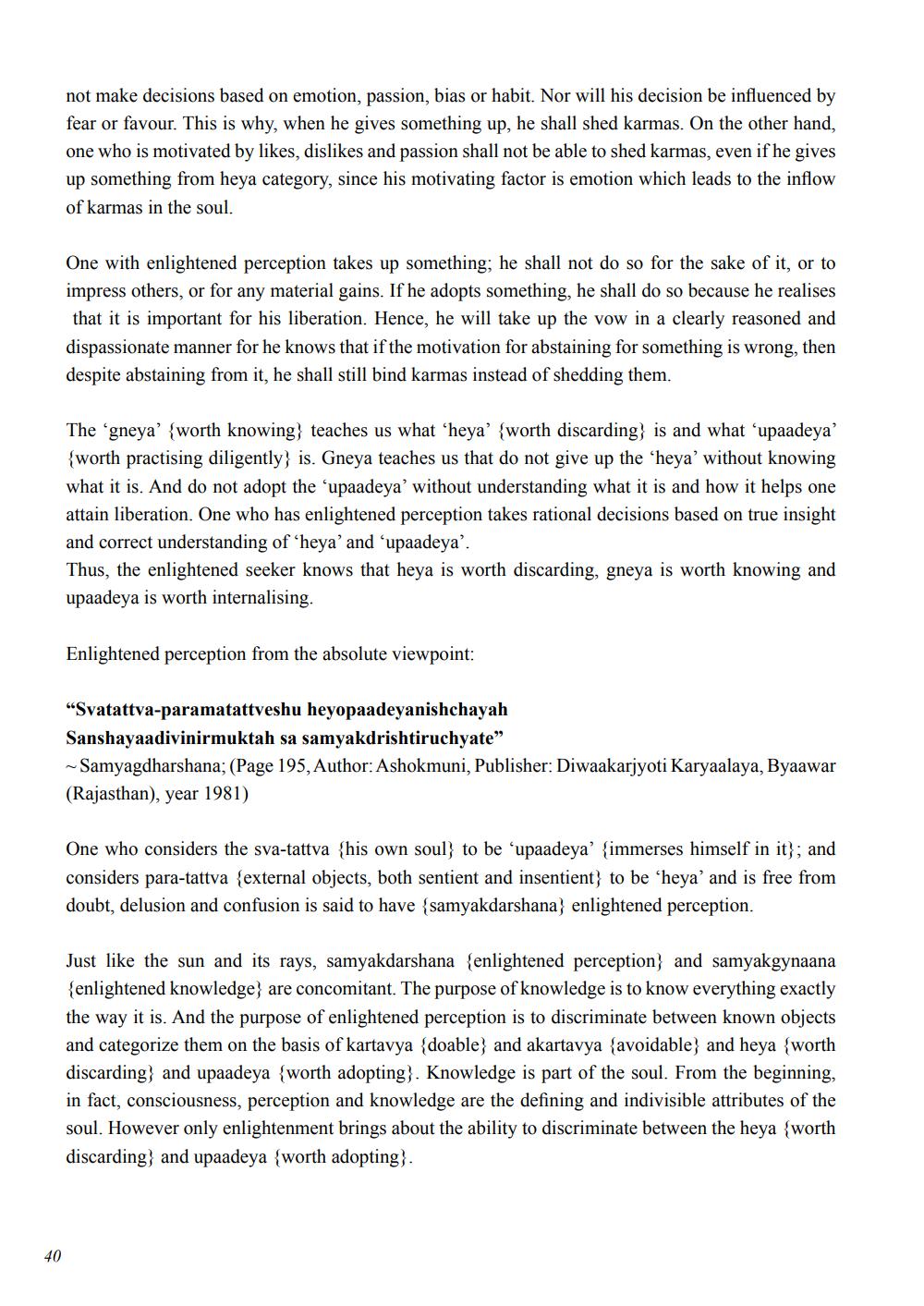________________
40
not make decisions based on emotion, passion, bias or habit. Nor will his decision be influenced by fear or favour. This is why, when he gives something up, he shall shed karmas. On the other hand, one who is motivated by likes, dislikes and passion shall not be able to shed karmas, even if he gives up something from heya category, since his motivating factor is emotion which leads to the inflow of karmas in the soul.
One with enlightened perception takes up something; he shall not do so for the sake of it, or to impress others, or for any material gains. If he adopts something, he shall do so because he realises that it is important for his liberation. Hence, he will take up the vow in a clearly reasoned and dispassionate manner for he knows that if the motivation for abstaining for something is wrong, then despite abstaining from it, he shall still bind karmas instead of shedding them.
The 'gneya' (worth knowing) teaches us what 'heya' (worth discarding} is and what 'upaadeya' {worth practising diligently} is. Gneya teaches us that do not give up the 'heya' without knowing what it is. And do not adopt the 'upaadeya' without understanding what it is and how it helps one attain liberation. One who has enlightened perception takes rational decisions based on true insight and correct understanding of 'heya' and 'upaadeya'.
Thus, the enlightened seeker knows that heya is worth discarding, gneya is worth knowing and upaadeya is worth internalising.
Enlightened perception from the absolute viewpoint:
"Svatattva-paramatattveshu heyopaadeyanishchayah
Sanshayaadivinirmuktah sa samyakdrishtiruchyate"
~Samyagdharshana; (Page 195, Author: Ashokmuni, Publisher: Diwaakarjyoti Karyaalaya, Byaawar (Rajasthan), year 1981)
One who considers the sva-tattva (his own soul) to be 'upaadeya' (immerses himself in it); and considers para-tattva (external objects, both sentient and insentient) to be 'heya' and is free from doubt, delusion and confusion is said to have (samyakdarshana) enlightened perception.
Just like the sun and its rays, samyakdarshana (enlightened perception} and samyakgynaana (enlightened knowledge) are concomitant. The purpose of knowledge is to know everything exactly the way it is. And the purpose of enlightened perception is to discriminate between known objects and categorize them on the basis of kartavya (doable) and akartavya (avoidable) and heya (worth discarding) and upaadeya (worth adopting). Knowledge is part of the soul. From the beginning, in fact, consciousness, perception and knowledge are the defining and indivisible attributes of the soul. However only enlightenment brings about the ability to discriminate between the heya (worth discarding) and upaadeya (worth adopting}.




